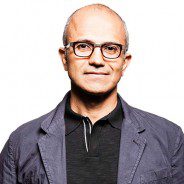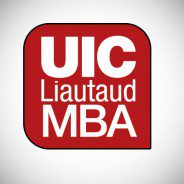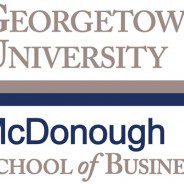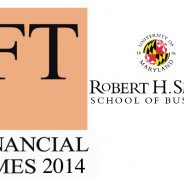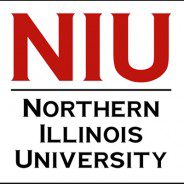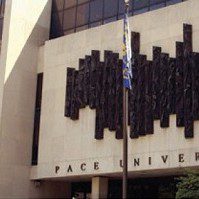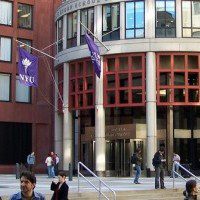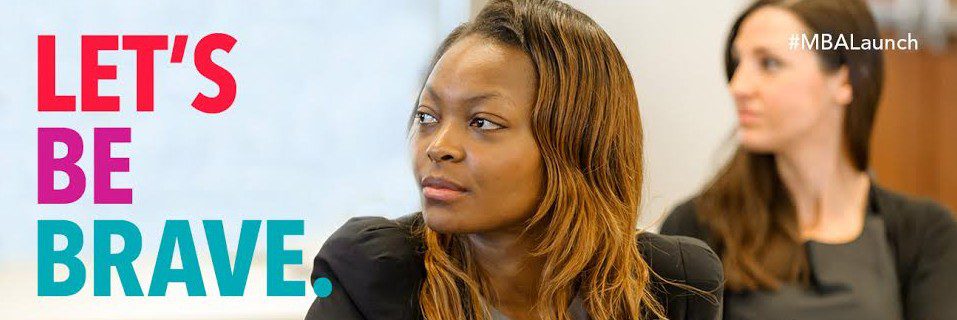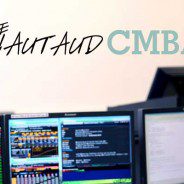If you are thinking about taking the GMAT or want to learn more about Veritas Prep’s GMAT courses, register to attend a one-hour seminar hosted by Veritas Prep’s course co-creator. This seminar will show you what to expect from the GMAT and how to conquer the exam.
Search results for :
What to Reveal on MBA Applications, According to Forbes
In a recent Forbes article, “50 Shades of MBA Admissions Grey,” Matt Symonds discusses the use of falsehoods in MBA applications. He also consults admissions experts for advice about when to reveal unsavory details from your past in an MBA application.
Since competition is fierce for places in MBA programs, MBA applicants may be tempted to “improve” their resumes with mistruths, overexaggerations, or hyperboles. Some applicants, like Mathew Martoma, the SAC Capital Advisors portfolio manager who was found guilty of insider training last week, may omit parts of their background they aren’t proud of from their MBA application. When he applied to Stanford Business School, Martoma did not tell the school that Harvard Law School had expelled him for altering his transcript.
Martoma’s case is a pretty clear example of admissions fraud. The Forbes article asks about “shades of grey” cases. Should you mention that you started a business if the business fell apart? Can you claim minority status if your father was born in Africa, even if you’re Caucasian? Should you admit to convictions for minor crimes like underage drinking?
The Forbes article provides advice for applicants with three common concerns about what information should be revealed. First, the author recommends that students explain poor grades or gaps in their career to the admissions committee, so that admissions officers can understand the extenuating circumstances. Students should also disclose if they were laid off or fired, or if they had a startup company that failed, before applying to business school. It is important for the applicant to address anything that may raise questions for admissions committee members. Finally, the article advises students to reveal any transgressions that are on their permanent academic or criminal records.
Judith Silverman Hodara, an MBA admissions consultant and the former Acting Director of Admissions at the University of Pennsylvania’s Wharton School, told Forbes that students should be forthcoming about any problems. “I generally advise students to address any issues that they think the admissions committees will want to know about – because if they somehow find out and you have NOT told them, the ‘sin’ of omission is much greater than than the initial trangression. As an applicant, if you are asking yourself ‘Should I or should I not share this?’, then you most likely should.”

REGISTER: Marshall’s MBA.PM Info Session
For any prospective MBA who wishes to remain fully employed while pursuing a graduate degree, the USC Marshall School of Business is holding and info session about its MBA Program for Professionals and Managers (MBA.PM).
The session will be next week on Wednesday, February 19 from 6:00pm to 7:30pm at the University Park Campus. You can register for the event here. Continue reading…
Three Interesting Facts About New Microsoft CEO Satya Nadella
Microsoft, the $300 billion force in computers, and its board have recently chosen the third CEO in the company’s 38-year history—46-year old Indian-American engineer Satya Nadella.
Here’s three interesting facts about Microsoft’s newest boss starting with one fact that will make the Windy City happy: Continue reading…
Register for an Online Info Session About the Liautaud MBA
For anyone who wonders what it’s really like to be a UIC Liautaud Graduate School of Business MBA student, you can hear a brief online presentation from 1st Year UIC Liautaud MBAs on February, 5th from noon to 1pm.
The presentation will highlight what life is like at Liautaud with topics of discussion including: insight into classroom experiences, student organizations, Graduate Assistantships, networking/professional development opportunities, and more. The session will conclude with an open Q&A forum. Continue reading…
Sloan Professor Publishes Book on Experiences of the Unemployed
Ofer Sharone, a professor at the Massachusetts Institute of Technology’s Sloan School of Management, has written a book that claims that the hiring process in the United States makes searching for a job more emotionally fraught and challenging than it needs to be. His book, “Flawed System/Flawed Self: Job Searching and Unemployment Experiences,” examines how job seekers blame themselves or the system for unemployment based on systemic factors.
“Flawed System/Flawed Self” compares American and Israeli white-collar labor markets. In the United States, the job search focuses more on personal characteristics, and whether employees will be a “good fit” for the company in terms of personality. Conversely, in Israel job-placement places greater emphasis on objective skills. Third party firms often conduct pre-employment tests and screenings on Israelis, narrowing the applicant pool before the applicant interacts with the company. Since the American hiring process places a greater emphasis on personal characteristics, US white-collar workers are more likely to take unemployment and job-seeking challenges personally, while Israeli workers are more likely to blame the system. Sharone also believes that US advice for job seekers “unintentionally exacerbates this problem” by giving job seekers the sense that they completely control the outcome of their job searches.
Sharon’s book is even more relevant in today’s economy, where roughly 4.1 million American job seekers have been unemployed for more than six months. While Sharone observes that Americans do not blame themselves for losing jobs, they soon begin to blame themselves when they have trouble landing a new job. American workers may find fault with their networking skills, personalities, or lack of career direction.
Sharone says that the unemployed did not expect to be jobless, “These are people who never thought this could happen to them. They are educated, they have experience, they are exactly the people our society makes out to be the winners.”
“Flawed System/Flawed Self” has just been published by the University of Chicago Press.
McDonough MBA in New Financial Times Global Ranking
Georgetown’s McDonough School of Business’ full-time MBA Program advanced four places to #36 in the 2014 Financial Times Global MBA Ranking.
McDonough ranking comes in part to its high placements among United States schools in the areas of alumni salaries, career progress, and aims achieved; the percentage of international students and women faculty at the school; the international experience provided by the program; the percentage of full-time faculty with doctorates; and the quality of faculty research. Continue reading…
Smith Comes in Strong in Latest Financial Times Ranking
After a strong showing last year, the University of Maryland’s Robert H. Smith School of Business’ MBA program held its ground in the Financial Times’ 2014 Global MBA rankings.
The Smith program has been ranked #50 in the world and #26 in the United States. Furthermore, the school came in at #5 worldwide in e-business and #9 worldwide in economics. Continue reading…
Register Now: NIU President Baker and Prominent Executives to Lead Panel Discussion
On February 13, Northern Illinois University President Douglas Baker will lead a panel discussion on the human side of change and innovation. The discussion will be help at NIU Naperville from 8am to 11am. Continue reading…
American University Remembers Donald Mayers
The Kogod School of Business and all of American University remembers Donald L. Myers, American University’s CFO, Vice President and Treasurer, who died on January 6, 2014 after a long struggle with cancer at the age of 68.
Myers’s career at AU stretched four decades, including 32 years as its chief financial officer. He served under six presidents, leaving a legacy that included building the university’s long-term financial health and developing the human resources, facilities, and grounds to support AU’s academic programs and aspirations. Continue reading…
Simmons Hosts Executive Program in Leadership for Women
This Fall, the Simmons School of Management will host an Executive Education program called “Strategic Leadership for Women.” The event is intended for women from all industries and functional areas, and professionals in middle or senior positions who hope to enhance their leadership role within their organizations.
Participants will take part in a variety of activities throughout the program, including case studies, personal coaching, networking, and role playing and active problem solving. The workshop will also use a 360 degree leadership assessment tool to help attendees get a better sense of their leadership practices and style. The program will also teach participants more about how strategic mentoring can impact their careers and the careers of their coworkers. The preliminary schedule of activities for the program is available here.
According to a survey conducted by Simmons, 85% of last year’s participants in the “Strategic Leadership for Women” program reported that they contribute more to their company as a result of the program.
The program will take place from September 15-19 on the Simmons School of Management campus. The program fee of $4,600 covers materials, classroom instruction, and most meals. Simmons has partial scholarships available for female leaders in the non-profit sector. Attendees who complete the program will earn 7.5 continuing education credits (CEUs) from Simmons for the Strategic Leadership for Women program. You can learn more about the program or register on Simmons’ website.
New York City MBA Programs That Don’t Require the GMAT or GRE

Below is a list of business schools in the New York City Metro that don’t require the GMAT or GRE. More information on the GMAT and GRE can be found in our MetroMBA No GMAT and GRE Guide and a complete list of MBA programs in the New York City region on our New York City Metro MBA page.
Please note that many of these programs are executive MBA programs, which typically cater to applicants with many years of professional experience. Click on a program profile below to see if you meet the eligibility requirements for that program.
New CMBA Program Offerings at UIC Liautaud
The UIC Liautaud Graduate School of Business announced its plans to a new accelerated MBA degree program. The one-year accelerated master’s is a cohort program with a focus on the global marketplace.
Over the course of one year, full-time students will concentrate on one of two tracks: financial markets and risk management or international management. This degree is designed to prepare students to have a global influence as they learn about the various contemporary issues facing multinational corporations.
Sloan Announces the Creation of the Zamir Telecom Fellowship
The Massachusetts Institute of Technology’s Sloan School of Management has partnered with Zamir Telecom, a global telecommunications company, to offer a new fellowship for MBA students who are pursuing careers in the technology sector. The fellowship is open to students who are from a country with an emerging economy (Asia, Africa, or the Middle East), or students who are interested in supporting technological advances in emerging economies.
The new fellowship was made possible by a $100,000 donation from Naufal Zamir, the founder of Zamir Telecom. Naufal Zamir grew up in Bangladesh. He originally trained as a lawyer before developing his own company. His company has come far in 10 years: Zamir Telecom is now one of the fastest-growing businesses in the United Kingdomj, according to The Sunday Times.
Zamir said that the fellowship was developed as an investment in talented young people from developing nations: “Our hope is that by giving these people the opportunity to come and study at MIT Sloan—thereby providing them with academic rigor and a chance to engage with world-renowned experts—we will help unleash their potential.” The scholarship also allows Sloan to expand its recruitment efforts and give more students the opportunity to go to business school.
Zamir Telecom is providing other opportunities for students at MIT Sloan in addition to the scholarships. The company will provide two MIT Sloan students with paid internships and one-year employment contracts after they receive their MBAs.

Joslin Diabetes Center CEO Speaks at Sawyer
John Brooks, the President and CEO of Joslin Diabetes Center, will speak at Suffolk University’s Sawyer School of Business on February 5 as part of Sawyer’s Inside Leadership Podcast Series. He will speak from 4:15 to 5:30 in the Stahl Center on Suffolk University’s Boston Campus. The event is open to Suffolk students, faculty, staff, and alumni. This event and the rest of the Inside Leadership Podcast Series will be available to the general public on iTunes U.
The Inside Leadership Podcast Series features speeches by successful “self made” business leaders who have used innovation, collaboration, and education to further their careers. Each guest of the series is interviewed by Executive in Residence Larry Stybel in front of a student audience at Sawyer.
John Brooks began his career in accounting at Arthur Andersen. He gradually transitioned into business leadership while working at Pfizer. He founded three life science companies, and then co-founded Prism Ventures, a leading venture capital firm that specializes in the life sciences. Brooks currently serves on the Board of Trustees of Suffolk University.
At the Joslin Diabetes Center, Brooks developed the initiative Joslin Everywhere and created a special room called the Collaboratorium to help foster a broader perspective of diabetes research at the hospital. Joslin was originally a Boston-based Harvard Teaching Hospital, and Brooks hoped to transform the financially-troubled non-profit into an educational institution pursuing a global diabetes cure. He brings his significant startup experience to the Joslin Center to try to help the Institute grow and develop a global mission.

Wharton Professor and Study Featured in NYT Article about Work-Life Balance
The Deal Book section of The New York Times recently published an article about the generational divide between business professionals on work-life issues. Some executives think that there are two populations in Wall Street: older professionals who worked long hours to climb the career ladder, and younger workers who are seeking meaningful work and the work flexibility that technology can provide.
Stewart D. Friedman, the director of the Wharton School at the University of Pennsylvania’s Work/Life Integration Project and author of “Baby Bust: New Choices for Men and Women in Work and Family,” believes that there is a generational difference in perspectives on work. Friedman says “There’s a huge gap across the generations in terms of how people look at the whole question of time and commitment and what that means.”
However, a Wharton study contradicts the idea that younger workers are “entitled” and expect to work fewer hours than their older counterparts did. Wharton researchers found that students graduating in 2012 expected to work 72 hours a week, while students graduating in 1992 expected to work 58 hours a week. The 1992 cohort also seemed more passionate about building a family outside of work. 78 percent of graduates in 1992 said they planned to have children while only 42 percent of 2012 graduates expected children.
Young people are increasingly pursuing careers in private equity, hedge funds, technology, and entrepreneurship, instead of trading and banking as salaries on Wall Street decrease. Experts observe that younger workers are putting more emphasis on finding meaningful work instead of focusing on finding a well-paying job. Wall Street firms are also beginning to re-evaluate their long hours, after the death of a Bank of America intern who reportedly worked long shifts before his death.
Friedman told The New York Times that companies need to take note of the shift in the aspirations and employment goals of new graduates, “Where companies don’t provide that sense of meaning and purpose, their brand as employer is weakened. They’re not going to be able to compete for the best and the brightest.”

2014 Booth Alumni Award Winners: Distinguished Young Alumni Award
Since 1972, the Chicago Booth School of Business Distinguished Alumni Awards have honored outstanding alumni achievements, and those who embody the school’s dedication to limitless inquiry and courageous leadership.
This week we’ll look at the winners of the 2014 Corporate Award, Entrepreneurial Award, Public Service Award, and Young Alumni Award that given out to four alumni who have made an impact across the business world. Last week you read about, George Conrades, winner of the Distinguished Corporate Award, Dhiraj Rajaram winner of the Distinguished Entrpreneurial Award, and Alfredo Moreno Charme. Today, you’ll meet Amy Lehman.
2014 Booth Alumni Award Winners: Distinguished Public Service Award
Since 1972, the Chicago Booth School of Business Distinguished Alumni Awards have honored outstanding alumni achievements, and those who embody the school’s dedication to limitless inquiry and courageous leadership.
This week we’ll look at the winners of the 2014 Corporate Award, Entrepreneurial Award, Public Service Award, and Young Alumni Award that given out to four alumni who have made an impact across the business world. Yesterday you read about, Dhiraj Rajaram, winner of the Distinguished Public Service Award. Today, you’ll meet Alfredo Moreno Charme.
Academic Leaders, Business Schools Disagree on MOOCs
Five of Bloomberg Businessweek’s top ten MBA full-time programs have decided to offer at least one MBA course online as a Massive Open Online Course (MOOC). This fall, the University of Pennsylvania’s Wharton School made its entire first-year MBA curriculum available on the online learning platform Coursera. Harvard Business School is developing an online learning initiative that may include MOOCs, and the Massachusetts Institute of Technology’s Sloan School of Management, Stanford Business School, and the University of Chicago’s Booth School of Business are also becoming more heavily involved in MOOCs. However, as the number of business schools who are developing or offering MOOCs increases, academic leaders are increasingly expressing skepticism about the online learning model.
There are enough business school MBA courses available as MOOCs that Poets & Quants published a course guide for students that encompasses all the fundamental classes that are part of an MBA. The Poets & Quants list demonstrates that a motivated student could piece together an elite business school education for less than $1,000, when an actual MBA program at an elite business school costs more than $100,000.
Unfortunately, the MOOC MBA sounds too good to be true and there are significant drawbacks to the $1,000 online MBA. Amy Hillman, the dean of Arizona State University’s W.P. Carey School of Business, observed that the MOOC MBA must be valuable to employers for it to mean anything: “Unless there becomes some widespread acceptance from employers that the collection of expertise from MOOCs is equivalent to a business degree, I don’t see them as competitive.” Other business school experts have observed that the MOOC MBA doesn’t give students some of the crucial advantages MBA students gain from a traditional education, including networking connections, career service resources, and the opportunity to develop communication and teamwork skills.
Some debate over MOOCs has been provoked by Babson College’s 2013 Survey of Online Learning. The study found that although the growth rate of online learning is slowing down, the number of students taking at least one online course has now surpassed 7.1 million. Study author I. Elaine Allen, the Co-Director of the Babson Survey Research Group, added “while the rate of growth in online enrollments has moderated over the past several years, it still greatly exceeds the growth in overall higher education enrollments.” At this time, a third of higher education students take at least one course online. The Babson study shows that online learning has become a crucial part of the higher education environment in the United States.
However, the Babson survey also found that less than a quarter of academic professionals believe that MOOCs are a helpful method for offering online courses. The authors, I. Elaine Allen and Jeff Seaman, observed: “The chief academic officers at institutions with the greatest experience and exposure to traditional online instruction are the least likely to believe in the long-term future of MOOCs.”
In an article, Bloomberg Businessweek hypothesizes that academics’ and business schools’ relative experience with MOOCs may account for their differences of opinion on MOOCs’ value. Business schools are relative newcomers to online education. Businessweek observed that most MBA programs avoided online learning in the 1990s, “when schools didn’t want to risk their reputations on a model associated with such schools as DeVry University.” Business school leaders at institutions that adopted online programs before most other schools also expressed doubt to Businessweek that MOOCs will replace MBAs.




